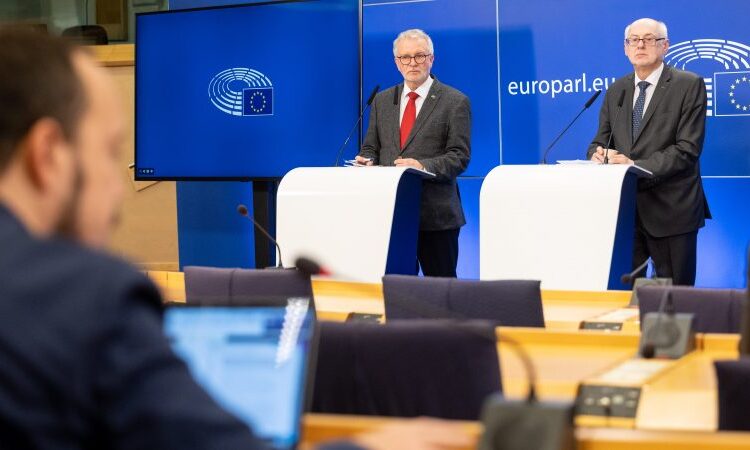
After a delay due to internal battles over who in the European Parliament should lead the file, parliament members in charge of a €500 million fund meant to incentivise joint procurement of weapons voted on Tuesday (25 April) in favour of entering negotiations with the European Commission and member states.
The fund, dubbed EDIRPA and presented by the European Commission last July, aims for the first time to boost urgent and joint purchasing of defence equipment for Ukraine, all the while replenishing the bloc’s already depleted stocks.
EU lawmakers approved the fast-track procedure with 106 votes in favour, eight against and six abstentions, which now allows all three institutions to start the final negotiations as early as May, as reported by EURACTIV earlier this month.
The European Parliament will give the official go-ahead when it meets for its regular plenary session on 8-11 May, Michael Gahler (EPP, Germany), who leads the file for the defence sub-committee in the Parliament (SEDE), told reporters.
“We can finish [negotiations] during the Swedish presidency” ending in June, he said.
Budget to be determined
However, some sore points are set to come up during the inter-institutional talks, the so-called trialogues.
As for now, “the Council’s general approach is quite close to ours; I don’t expect a principled obstacle”, Zdzislaw Krasnodębski’s (ECR, Poland), a co-rapporteur for the file in the European Parliament’s Industry committee (ITRE), told reporters after the vote.
He pointed out, however, that there may be disagreements on the budget issue.
The Parliament’s final position suggests a €1 billion budget for the fund, doubling the €500 million originally proposed by the European Commission.
The initial amendment of a €1,5 billon-strong budget “was too high for some political groups, so we settled at a majority for this solution,” Krasnodębski told EURACTIV.
He also said there were questions about whether more budget should be taken from the margins of the EU’s current long-term budget (MFF), but also that “there were some concerns that it could have an impact on some other plans“.
Gahler echoed that “there’s nothing left” in the current budget to use.
With a higher budget, “we want to prevent everything from going to one major project and make sure that we have a variety of projects used that could profit from the fund,” Gahler said.
Definition of ‘Europe’
Another point of friction expected to come up in negotiations relates to allowing non-EU countries Moldova and Ukraine to benefit from the joint acquisition of weapons, as the European Parliament wishes.
“There might be some who suddenly have a hiccup when they read about Ukraine and Moldova,” Gahler told reporters, indicating that the member states and the Commission might not be on board with the idea.
Neither the European Commission nor member states were ready to open the fund to those countries for the time being.
“We want to deliver additional [equipment], so so far it perfectly serves our purpose, our political will to help primarily Ukraine in its defence and to get Moldova in better shape in this regard,” Gahler said.
[Edited by Alexandra Brzozowski/Zoran Radosavljevic]







